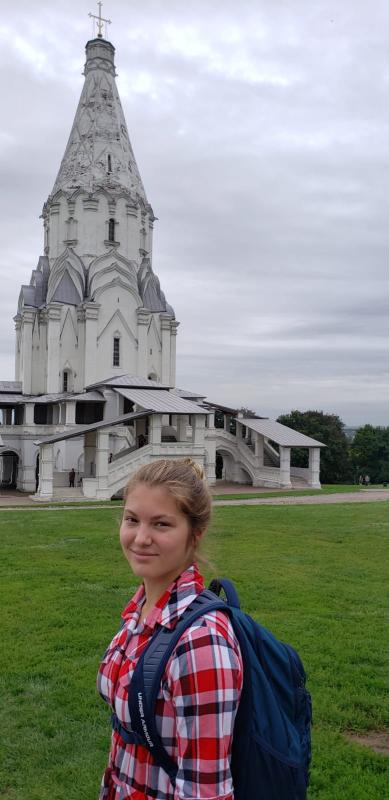
Classwork isn’t everything - good grades are important, but don’t let this keep you from getting practical experience and having fun with extracurriculars!
Diana Liepinya
Hometown: Lutherville-Timonium, MD
Expected grad date: May 2022
Can you tell us a bit about your background?
I was born in Russia, but my family moved to the U.S. when I was three. Both my parents work in medicine, so engineering doesn’t really run in the family. I think what got me into engineering was - don’t laugh -educational YouTube videos. They’re really good at presenting unusual mathematical and scientific concepts in intriguing ways, and I’d spend hours watching them in middle school.
Why did you choose to study at the University of Maryland?
I wanted to go somewhere with plenty of research opportunities, a good MSE department, lots of student clubs, and a pretty campus. Sadly for me, these criteria didn’t shorten my school list by much. Ultimately, what set UMD apart was its affordability, convenience and location. It’s nice to have the option to eat a home-cooked meal or pick up my winter clothes over the weekend, and the proximity to D.C. is great for internships and culture.
How did you hear about MSE and what prompted you to declare it as your major?
For a school project in 11th grade, my friend interviewed a materials scientist working on solar panels. At the time, I was super into math, chemistry and physics, but had no idea which to pick as my major on college applications. I also wanted my career to help the environment, which didn’t seem compatible with number theory or particle physics. My friend’s presentation told me that I didn’t have to choose; I could learn about atomic interactions then apply my knowledge to sustainable technology! MSE seemed like the obvious choice once I learned it existed.
Have you conducted any research, either on or off campus?
This is my second summer working with Dr. Manuel Smeu at Binghamton University! His group does computational modeling of materials; they’re officially in the physics department, but their work is regularly published in materials science journals. I’ve spent my time testing components for beyond Li-ion batteries, which are necessary for electric vehicles (current technology uses scarce elements) and mitigating the variability of renewable energy sources (to use solar power at night, you need to charge a battery during the day).
So, what has been the best thing about your experience on campus thus far? Any challenges you've had to overcome?
I love being surrounded by knowledgeable, motivated people! If you want to learn something, there’s a resource for it on campus, whether it’s a club for swing dancing or a guided study session for chemistry. The hardest decision I’ve faced is what I will invest time into; I can’t have three majors and participate in ten clubs, so I’ve had to put some of my interests on hold to cultivate others.
And when you’re not in class, how do you spend your time?
I go to Club Running practice every day, which is a great way to decompress and socialize. I’m usually away on the weekends, either for meets with Club Running or outdoor trips with Terrapin Trail Club. I’ll also see a show or two at the Kennedy Center each semester (I love musicals and ballet!). I try to make it to dance classes on Mondays and Thursdays, and last semester, I even took ice skating lessons at the rink near campus.
Do you have you any post-commencement plans?
I want to teach English abroad for at least a year before I go on to work or grad school.
Given the complexity of the engineering major, do you have any advice for incoming students as to how they can be successful?
Classwork isn’t everything! It’s important to get good grades, but don’t let this keep you from getting practical experience and having fun with extracurriculars.
Just for fun, what do you want to be when you grow up?
This is a cliché answer, but I read a book by Chris Hadfield a while ago about how cool it is to be an astronaut, so… an astronaut! They have to be mechanics, scientists and ambassadors, all while thinking on the fly and being in ridiculous situations. Only a tiny fraction of their time is spent in space, but I think it’s the preparation and debriefing that make the job so interesting!
Top